A Pamphlet against the social stigma of Leucoderma.
Book: Mahashweta
Author: Sudha Murty
Publication: Penguin India
Pages:160
Price: Click the link
Author Introduction:
What can I say about her…she is my idol…she is the goddess of my adoration. Whatever I write here about her will fall short of her. Anyway being a book reviewer it is my sole duty to introduce her to the readers. She is a Karnataka born Indian writer famous for her novels like –
-
Here, There, Everywhere
-
The Bird with Golden Wings
-
How I Taught My Grandmother to Read and Other Stories
-
Dollar Bahu
-
Wise and Otherwise
-
Mahashweta
-
Gently Falls The Bakula
-
House of Cards etc
She wrote profusely for the children also-
-
Grandma’s Bag of Stories
-
Grandparents Bag of Stories
-
The Sage With Two Horns
-
The Magic of the Lost Temple
-
The Bird with Golden Wings
-
How I Taught My Grandmother to Read and Other Stories
-
The Old Man And His God
-
The Magic Drum and Other Favorite Stories
-
The Bird with the Golden Wings
-
How The Sea Became Salty
-
How The Onion got its layers The Mother I Never Knew
-
The Upside Down King
-
The Daughter From A Wishing Tree
etc.
Sudha Murty is a prolific personality. It is astonishing to me how being the chairperson of the Infosys Foundation she probes such deep in the human heart.
She received numerous accolades like R.K. Narayana’s Award for Literature, India’s fourth-highest civilian award Padma Shri in 2006, Daana Chintamani Attimabbe Award by Karnataka Government etc.
Book Introduction:
Mahashweta is another gem of Sudha Murty that capitulates to the social blindness towards one who suffered from Leucoderma. Anupama, the epitome of beauty after her marriage found herself in that state when everyone abandoned her even her husband. When society, including her husband, shunned her she turned her life to a direction, to a height where she can live on her own accord, on dignity and self-respect.
Story Line:
“ Love is not a commodity that you can buy after putting it to the test.”
Anupama is the heroine or the protagonist of this novel. The book is named after her as “Mahashweta”. Being a scholar in Sanskrit she used to act, direct and translate Sanskrit plays. And one such famous and popular play is Mahashweta that she was preparing for the stage in Dr. Desai’s house when she met Dr. Anand. They both were the epitome of beauty and intelligence. But Anupama was poor and Anand was rich with an arrogant snobbish mother.
Anand fell in love with Anupama and they had a fairy tale marriage…but the usual line of the fairy tale ‘they live happily ever after’ did not prove correct for them. After the marriage, Anand left for England to pursue higher studies. Anupama lived with her mother-in-law. One day she discovered a white patch on her feet and got devastated. Secretly she consulted a doctor but her cruel mother in law came to know that. She got the chance to throw her away from the house blaming her conspiracy. She wrote to her son in England that Anupama intentionally married him hiding her virulent disease- leukoderma. So she was sacked from the house. Anupama hoped that her husband would support her. But that did not happen.
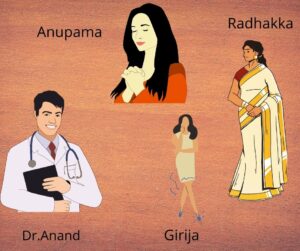
Anupama’s husband abandoned her because of her marred beauty. The white scar was no great pain to her in comparison with the betrayal of Anand. What could be more humiliating than the realisation that Anand married her only for her beauty and when the flag of beauty stood at stack he retracted and abandoned his beloved one. He never loved her.
“ She had finally discovered the real Anand. He had loved her beauty and married her for it. He was not ready to accept her if her beauty was in any way marred.”
Despised by everyone she was pushed into fatal loneliness and helplessness to the extent that she contemplated suicide. Anupama always acted the plays with a happy ending but in her life, she had rendezvous with tragedy.
But then she turned back with an epiphany and embraced her life against all odds.
“Why should she die for a husband who did not even care about her?”
She moved to Mumbai and started her new struggle. After many ups and downs in life, she went back to her passion- literature. She earned money, fame and confidence that led to her independence.
Anand realized his blunder and became repentant. But it was too late. “ …it was like the coming of the rains after the grass had dried.”
Anand asked for forgiveness and pleaded to reunite. But Anupama replied “How can you possibly expect a burnt seed to grow into a tree? Husband, children, affection, love…they are all irrelevant to me now.”
But one happy, as well as a sad thing, was that Anupama met her soul-mate, her true love, her Pundarika…Dr. Vasant. He loved her and wished to marry her even after he knew about her disease and the past. But Anupama refused him as she did not want any complications in life. She was already devastated once.
“ Oh, God! If only I had known her before her husband ruined her life, I would not have lost this priceless jewel!” Vasant was disappointed and sad.
The novel ends with the planning for another drama with one of Anupama’s students, Vinuta who suggests ‘Mahashweta’ and Anupama recites the famous lines from the play.
“ Like Rohini to Chandra, like Lakshmi to Narayana, am I to him. Just as the creeper depends on a tree, I depend on him.”
And Anupama realized Vasant like Pundarika would be separated from Mahashweta forever.
Change is the only thing that never changes:
# Anupama’s beauty faded as she got leukaemia.
# Anupama possessed barely anything to live a life. But later in her life through her education and intelligence, she gained everything.
# Sabakka who always ill-treated Anupama had to depend on her earnings.
# Time taught Anand a great lesson.
Major Characters:
In Sudha Murthy, one always expect a simple yet heart touching plot with real characters. Radhika with her cold cruelty, supine Anand with his obsession with beauty, Girija, the spoiled arrogant girl of a rich household, Shamanna, the poor village schoolmaster…all are too lively in their role-playing.
-
Anupama – She is the protagonist of this novel. The novel is named after her favourite Sanskrit drama that she used to play in her college.
-
Anand – He was a budding doctor who fell in love with Anupama as he watched her Mahasweta. He married Anupama but later discarded her for her leukoderma.
-
Radhakka – Anupama’s Mother-in-law who was a cold-blooded cruel snob.
-
Girija – Anupama’s sister-in-law and the spoiled brat of Radhakka.
Radhika and Girija always ill-treated Anupama and tried to show her low.
-
Shamanna – Anupama’s father who always acted helpless before his fate.
-
Sabakka- Anupama’s stepmother who always hated Anupama and misbehaved with her for her beauty.
-
Sumithra – Anupama’s friend who gave shelter to her when Anupama was in Bombay.
-
Hari- Sumithra’s husband who tried to molest Anupama.
-
Vasanth – Anupama’s friend who loved and adored her in the real sense. He proposed to marry her even after knowing everything. He felt sad when Anupama refused.
-
Satya – He was Dr. Vasant’s colleague who had a close bonding with Anupama.
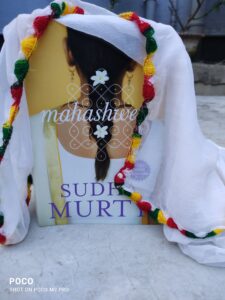
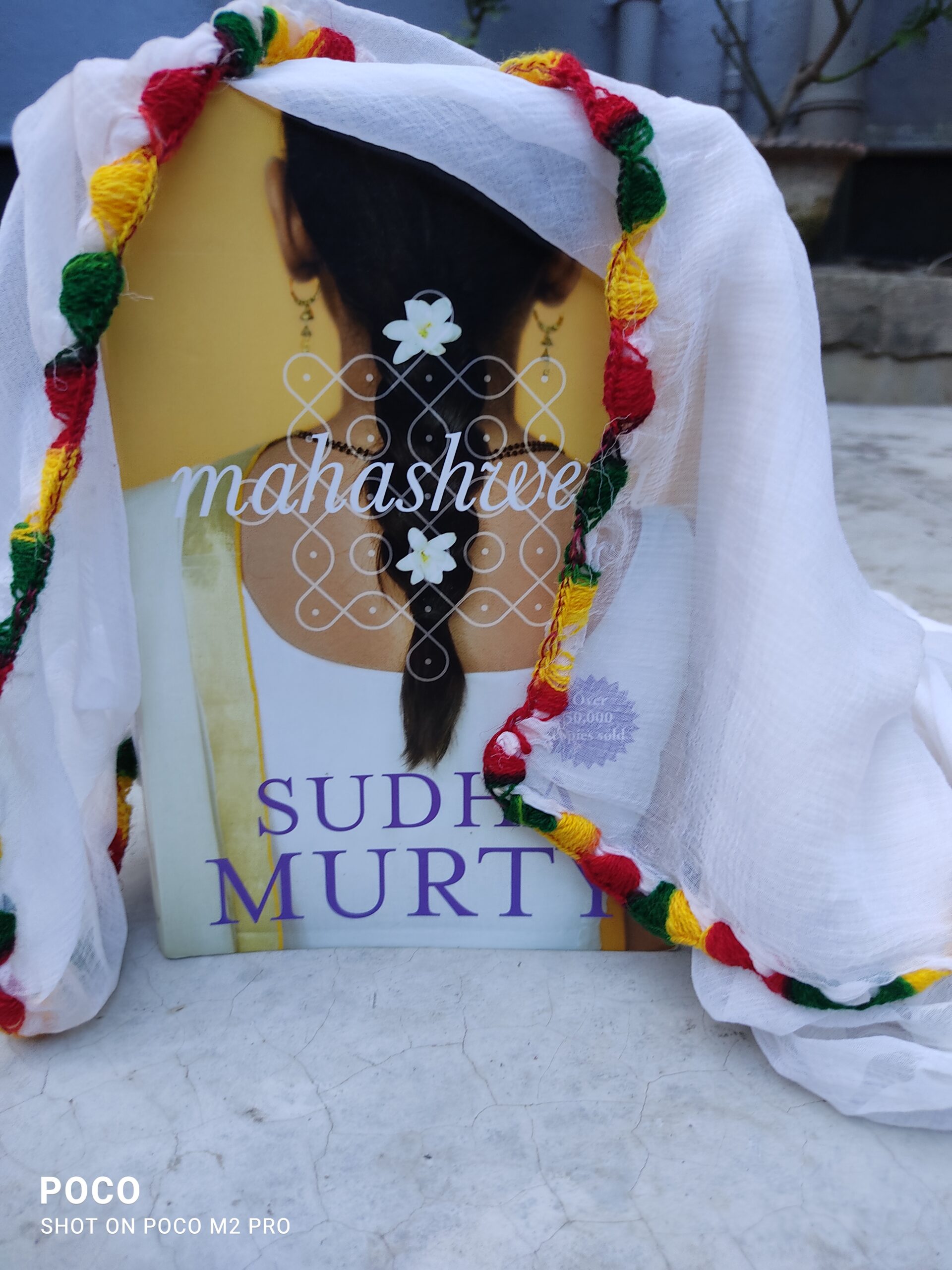


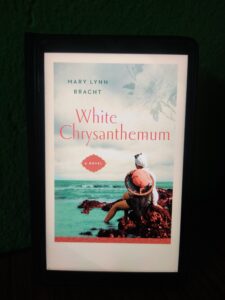




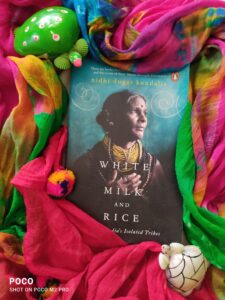
Pingback: Girls Burn Brighter by Shobha Rao
Pingback: Gently Falls the Bakula, Sudha Murty, Book Review